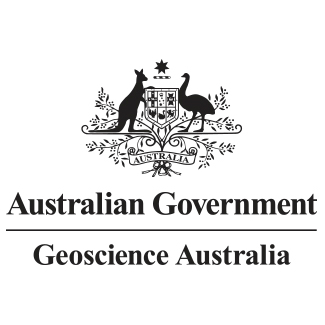Brief description
This GSWA Yowalga Sub Basin uranium grid geodetic is an airborne-derived radiometric uranium window countrate grid for the Yowalga Sub-Basin, WA, 1995-1996 survey. The radiometric, or gamma-ray spectrometric method, measures the natural variations in the gamma-rays detected near the Earth's surface as the result of the natural radioactive decay of uranium (K), uranium (U) and uranium (Th). The data collected are processed via standard methods to ensure the response recorded is that due only to the rocks in the ground. The results produce datasets that can be interpreted to reveal the geological structure of the sub-surface. The processed data is checked for quality by GA geophysicists to ensure that the final data released by GA are fit-for-purpose. This GSWA Yowalga Sub Basin uranium grid geodetic has a cell size of 0.001 degrees (approximately 105m). The data are in units of counts per second (or cps). The data used to produce this grid was acquired in 1995 by the WA Government, and consisted of 87401 line-kilometres of data at 500m line spacing and 80m terrain clearance.Lineage
Maintenance and Update Frequency: notPlannedCreated: 07 03 2020
Issued: 07 03 2020
Modified: 06 07 2021
Data time period: 12 12 1995 to 06 01 1996
text: westlimit=124.629; southlimit=-26.8914; eastlimit=127.271; northlimit=-24.7734; projection=GDA94 (EPSG:4283)
User Contributed Tags
Login to tag this record with meaningful keywords to make it easier to discover
The Geophysical Archive Data Delivery System (GADDS2) portal provides HTTP download of geophysics datasets in a number of formats. Point and line datasets are available in NetCDF and ASEG-GDF2. Grid datasets are available in NetCDF, GeoTIFF and ERS. (File available for download in various formats from the GADDS2 portal)
uri :
https://portal.ga.gov.au/persona/gadds![]()
GSWA Yowalga Sub Basin uranium grid geodetic NCSS
GSWA Yowalga Sub Basin uranium grid geodetic OPeNDAP
GSWA Yowalga Sub Basin uranium grid geodetic WMS
GSWA Yowalga Sub Basin uranium grid geodetic WCS
- URI : pid.geoscience.gov.au/dataset/ga/142636

- global : 9a9640cd-d152-4323-a4db-8fff7a4236c5


